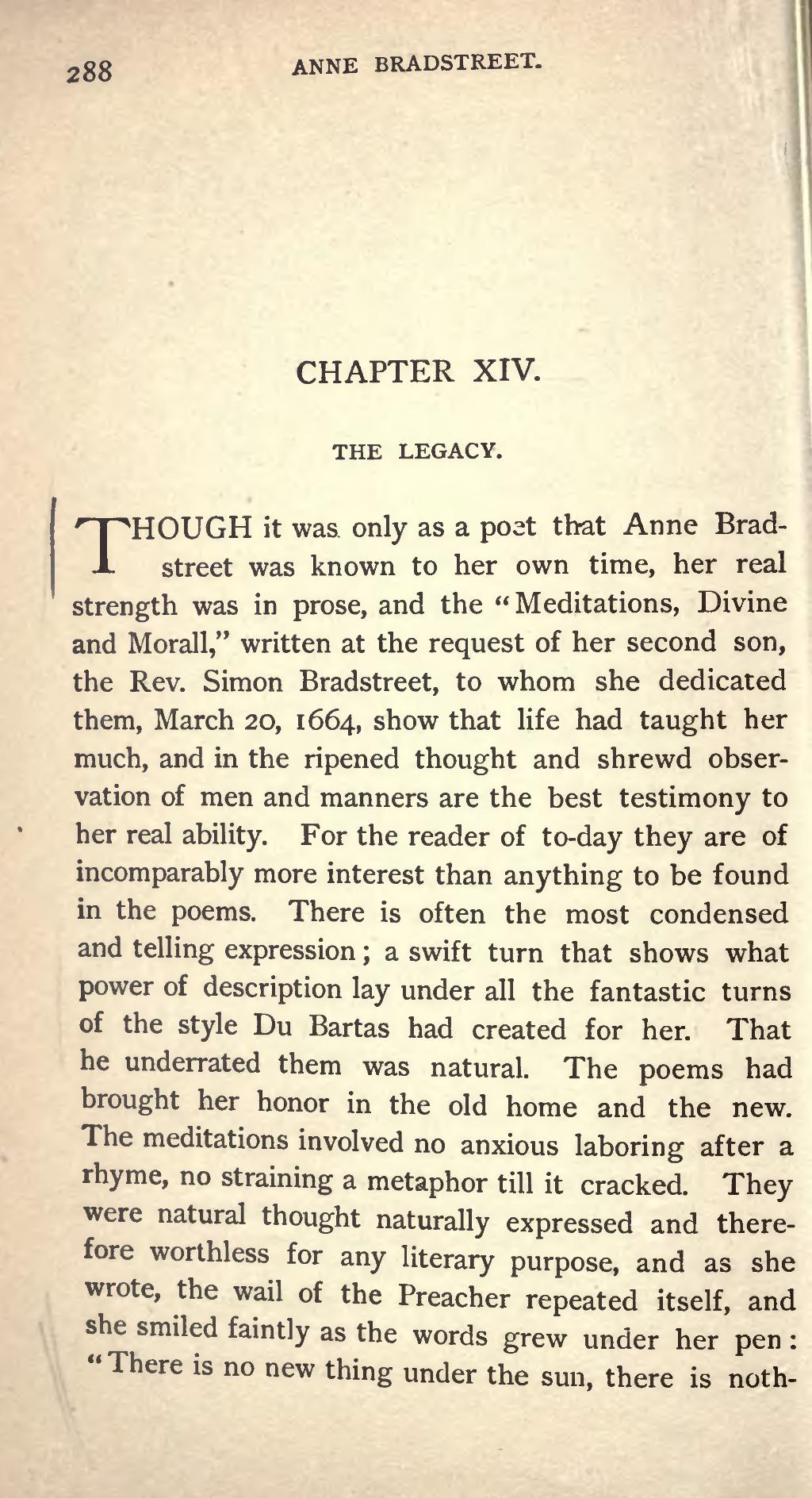CHAPTER XIV.
the legacy.
THOUGH it was only as a poet that Anne Bradstreet was known to her own time, her real strength was in prose, and the "Meditations, Divine and Morall," written at the request of her second son, the Rev. Simon Bradstreet, to whom she dedicated them, March 20, 1664, show that life had taught her much, and in the ripened thought and shrewd observation of men and manners are the best testimony to her real ability. For the reader of to-day they are of incomparably more interest than anything to be found in the poems. There is often the most condensed and telling expression; a swift turn that shows what power of description lay under all the fantastic turns of the style Du Bartas had created for her. That he underrated them was natural. The poems had brought her honor in the old home and the new. The meditations involved no anxious laboring after a rhyme, no straining a metaphor till it cracked. They were natural thought naturally expressed and therefore worthless for any literary purpose, and as she wrote, the wail of the Preacher repeated itself, and she smiled faintly as the words grew under her pen: "There is no new thing under the sun, there is noth-
